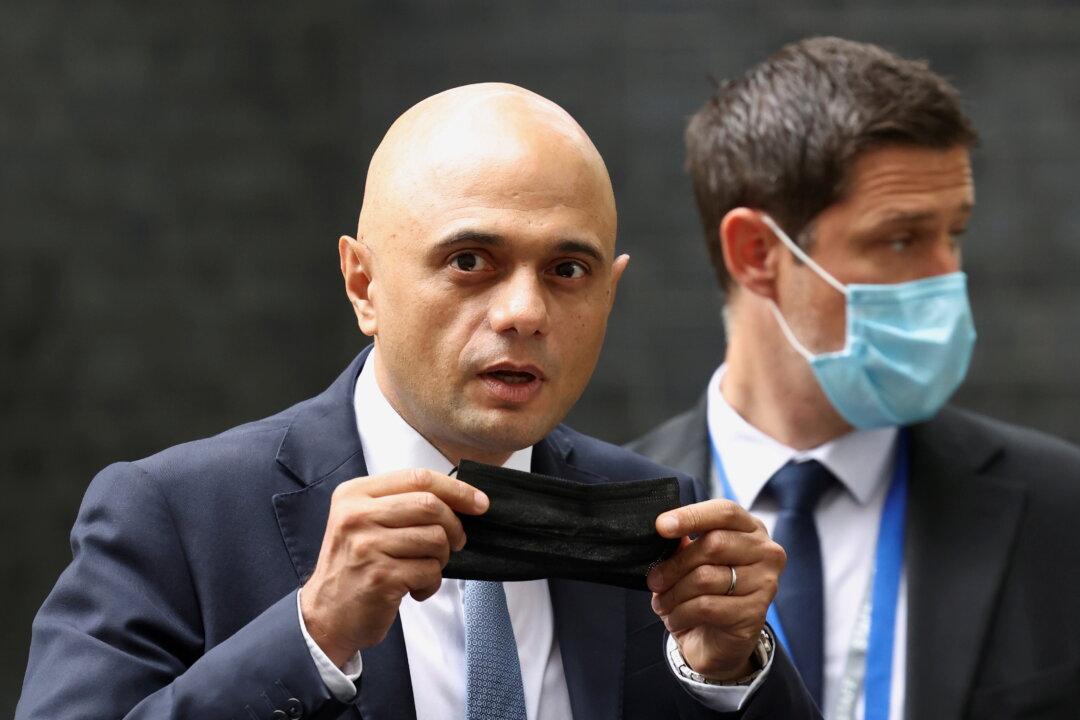Downing Street said it’s currently “a matter of personal judgment” whether people wear masks or not after Health Secretary Sajid Javid suggested lawmakers should “set examples.”
When asked on Thursday about Javid’s remarks made during a televised briefing the evening before, Prime Minister Boris Johnson’s spokesman said “it remains the case that it’s a matter of personal judgment for all individuals on wearing a mask.”





